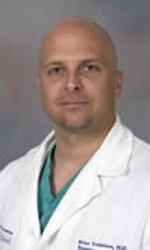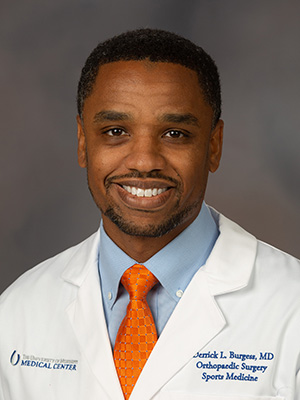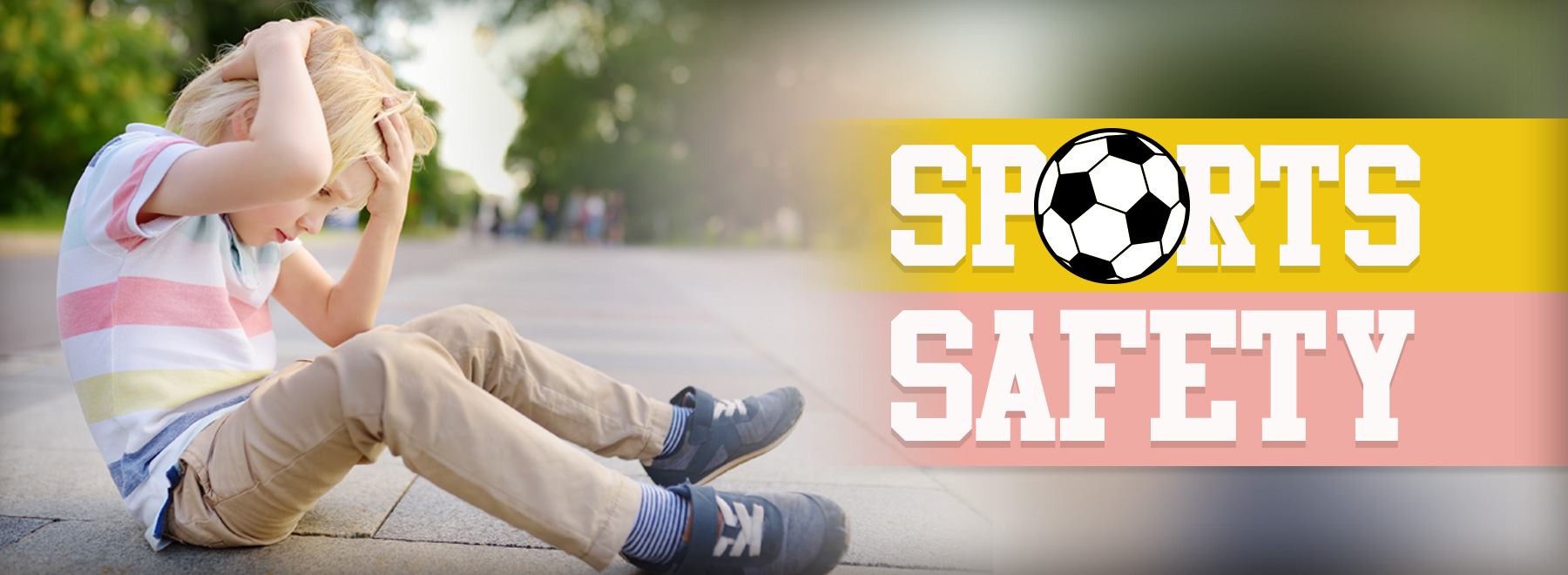Increased outdoor activity raises risk of concussion
If a child is showing signs of concussion, do you know the right time to take them to see a doctor? According to UMMC physicians, it should be “as soon as possible.”

With spring sports in motion and summer camps just around the corner, emergency rooms can expect to see a few children with sports-related head injuries. Dr. Rudolph “Rudy” Napodano, sports medicine specialist and assistant professor in the Department of Emergency Medicine, shared that since his start at the UMMC Sports Medicine Clinic last July, he and Dr. Brian Tollefson, professor of emergency medicine and assistant professor of orthopaedic surgery, have treated close to 50 patients combined for concussions-many of whom were student athletes.

The sports medicine Clinic, located at Merit Health Madison, is managed by the Emergency Department and works closely with UMMC Orthopaedic Surgery and Rehabilitation. In addition to its standard clinic hours, sports medicine offers a range of athletic services aimed at the rapid response and treatment of sports injuries.
“We cover various high schools in the area and provide medical care to all Jackson State student athletes,” said Napodano. “In the acute setting, like if you’re at a football game or a basketball game, if you have suspicion that an athlete suffered a head injury, there are many signs and symptoms to look for.”
There is now growing agreement that concussions involve different clinic profiles or subtypes. These clinical profiles have their own profile of symptoms. A lot of them overlap, but patients can present with symptoms such as: drowsiness, headache, loss of consciousness, memory loss, irritability, depression, confusion, dizziness, difficulty with concentrating, dizziness, nausea and vomiting.
He said the biggest misconception people have is that all concussions are the same.
“What we’re learning is that each concussion is unique and can have overlapping symptoms that need to be treated a certain way,” he said. “So, it’s best to be seen by a concussion specialist so that we can guide treatment, and ultimately get the patient back to living a normal life.”
One of the most important things when it comes to a quicker recovery, he said, is removing the athlete from the game as soon as they begin exhibiting symptoms. In one study of nearly 800 athletes, nearly 80% reported playing with concussion symptoms.

According to Dr. Derrick Burgess, assistant professor of orthopaedic surgery, it is also very important to be aware of concussions in people who have suffered from falls or in trauma patients. “It is not uncommon that people who are involved in motor vehicle accidents have concussion symptoms for prolonged periods of time without being diagnosed and treated,” he said.
"The earlier they can get help, the better their outcome,” said Napodano. “That’s why it’s extremely important for athletic trainers, coaches, everyone involved to be on the same page about these kinds of injuries.”
The NCAA and the governing bodies for athletics in the state of Mississippi, and most other states, require athletes suspected of concussion be seen by a health care provider. But anyone who is exhibiting concussion symptoms—not just athletes—should be seen by a provider as soon as possible. Early treatment has proven to be a key component in recovery time and getting a patient back to their everyday life as easily as possible.
“Treating concussions is not only the responsibility of the physician,” said Burgess. “Teammates, coaches and family members are all involved in the early diagnosis and proper management of concussions because sometimes the symptoms can be very subtle.”
When it comes to recovery, no matter what the symptoms or type of concussion, Napodano said there are two things that make a world of difference: early exercise and return to normal activity.
“I can’t emphasize enough how important it is to exercise,” he said. “You want to do activities that have low risk for being injured again. It can be something as simple as walking or riding a stationary bike.”
He explained that while there is no specific biomarker indicating why exercise aids in recovery, using normal cognitive function helps heal the brain.
“The brain is just like any other part of the body when it comes to healing,” Napodano said. “If you had an ankle sprain and you immobilize it for a prolonged time and don’t promote early range of motion, early strengthening, things like that, then it’s going to take a longer time to heal. The idea of treating concussions is similar.”
To schedule an appointment with UMMC Sports Medicine, call (601) 984-6525 or go online to umc.edu/healthcare/make-an-appointment.
The above article appears in CONSULT, UMMC’s monthly e-newsletter sharing news about cutting-edge clinical and health science education advances and innovative biomedical research at the Medical Center and giving you tips and suggestions on how you and the people you love can live a healthier life. Click here and enter your email address to receive CONSULT free of charge. You may cancel at any time.



